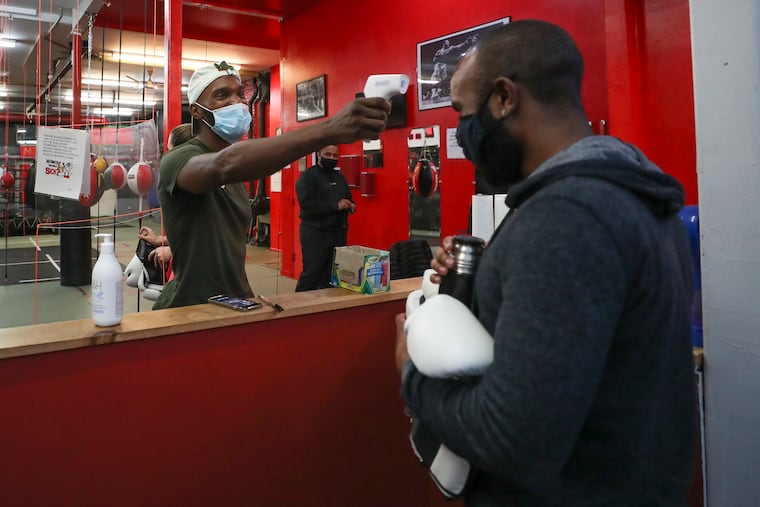Philly should allow gyms to stay open during COVID shutdown | Expert Opinion
While well-intentioned, it is critical for officials to recognize fitness centers as a tool in fighting COVID-19 and the devastating impact the pandemic has had on our physical and mental health.

The COVID-19 virus continues to maintain its grip on the country as states experience surges in new cases. Cases are spiking in Pennsylvania, and policymakers are considering reinstating lockdowns to slow its spread ahead of the holidays. On Monday, Philadelphia officials announced widespread restrictions, including closing gyms and fitness centers through the end of the year.
While well-intentioned, it is critical for officials to recognize fitness centers as a tool in fighting COVID-19 and the devastating impact the pandemic has had on our country’s physical and mental health.
The lockdowns across the nation led people to be more sedentary, with a 32% reduction in physical activity. In addition, a recent nationwide poll by the Kaiser Family Foundation reports that more than half of U.S. adults — about 53% — say that their mental health has been negatively impacted by worry and stress over the pandemic. That number is a significant increase from the 32% who reported being similarly affected in March.
Furthermore, these negative health trends also bring into view issues of health equity and health disparities for some of our most vulnerable populations. In Pennsylvania, physical inactivity and obesity disproportionately impact our lower-income population and communities of color. The obesity rate for white Pennsylvanians is 29.9%, compared with 34.9% of Latinos and 41.9% of African Americans.
Fitness plays a critical role in combating the virus and improving people’s overall physical and mental health. Chronic health conditions impacting millions of Americans, including obesity, hypertension, and diabetes, can cause complications and significantly increase the chances of hospitalization and death for those who contract COVID-19. Increasing evidence suggests that some racial and ethnic minority groups are being disproportionately affected by COVID-19. Regular physical activity can protect us from these conditions while helping us to fight the virus. You may not think you have the time to squeeze in a workout, but researchers found that as little as 20 minutes of exercise can have anti-inflammatory effects that boost your immune system.
Mental health, much like physical health, also disproportionately impacts our lower-income communities. While 7.2% of Pennsylvanians who make over $75,000 a year reported that they experience frequent mental distress, that number nearly quadruples to 27.1% for those making less than $25,000 a year.
» READ MORE: These are the current Philadelphia coronavirus guidelines
Levels of stress, anxiety, and depression across the U.S. all increased during the pandemic. To cope, it appears many Americans turned to alcohol, according to a study by RAND and the National Institute of Alcohol Abuse and Alcoholism, which found a spike in consumption. As lead author of the study and RAND sociologist Michael Pollard noted, “People’s depression increases, anxiety increases, [and] alcohol use is often a way to cope with these feelings.”
Once again, fitness can play a role, as turning people away from increased alcohol use and toward regular physical activity is known to have long-term mental health benefits that reduce those conditions many are struggling with right now.
All of this underscores the critical need for regular physical activity — especially now in the time of COVID — for our country’s physical and mental well-being. And while weddings, parties, and other large group gatherings are known hotbeds for COVID transmission, large fitness centers, on the other hand, are not.
In states reopening across the country, thousands of fitness centers have developed, in coordination with local and national public health officials, stringent safety and sanitization protocols to reduce the risk of spreading COVID-19. Here in Pennsylvania, those protocols include limiting capacity, social distancing, wearing a face mask at all times, and increased sanitization of high-contact surfaces, including fitness equipment.
The International Health, Racquet & Sportsclub Association recently released results from a nationwide survey of individuals who have returned to their fitness clubs and found that 88% of them are confident in the COVID-19 mitigation efforts their club is using and nearly 65% are using exercise to improve their mental health.
Certainly, more studies are needed to analyze the effectiveness of COVID-19 protocols to protect public health and safety. Meanwhile, the state’s fitness centers are taking necessary precautions to do their part while also providing an essential service to the public — enabling Pennsylvanians to take care of their physical and mental health.
Dr. Kenneth P. Moritsugu formerly served as the deputy surgeon general of the United States.